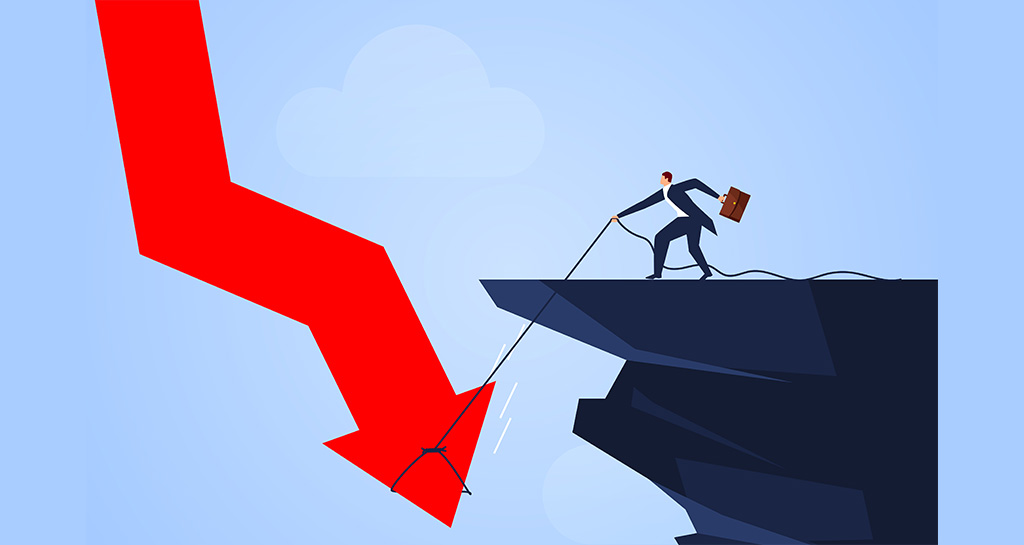
Businesses are still feeling the pandemic’s impact where it hurts the most – their budgets. And unfortunately, an economic recession is likely. Growth is projected to slow from 6.1% last year to 3.2% in 2022, and Fannie Mae reports that the U.S. will likely enter a recession in Q1 of 2023, shrinking about .4% for the year.
While recessions are certainly troubling for consumers, they can be particularly unnerving for business leaders. Reduced consumer spending – and even just the fear of it – can result in businesses scaling back what some believe are unnecessary expenses, such as marketing and advertising.
But wait! Not so fast! Sometimes, the very thing that feels counterintuitive may be your saving grace. As Henry Ford once said: “Stopping advertising to save money is like stopping your watch to save time.” And he should know – Ford Motor Company has weathered many downturns and a century later is still a household name.
What It Takes to Survive and Thrive
Many companies over the years survived and even flourished during recessions. For example, in the 1920s, the packaged goods brand Post was in strong command of the cereal leaderboard. Once the Great Depression hit, Post cut back its advertising budget right when its largest competitor, Kellogg’s, doubled its advertising budget. Kellogg’s invested heavily in radio to introduce Rice Krispies featuring the memorable “Snap, Crackle and Pop” slogan. Profits rose 30%, allowing Kellogg’s to surpass Post and become the cereal giant they are today.
Another example is Starbucks. During the 2008 economic downturn, Starbucks was closing hundreds of stores and letting thousands of employees go. This was a critical turning point and could have been the start of the brand’s demise. What saved them was a shift in marketing strategy – they leveraged social media to promote a new customer-centric approach and turned their cafes into welcoming gathering places. The strategy transformed consumers’ perception of the brand from an overpriced luxury to an essential part of a thriving local community.
Ride the Wave with Smart Marketing Strategies
While tight budgets will invariably reduce spending power for marketing departments, here are some marketing strategies that work during a recession:
- Focus on existing customers: The Harvard Business Review published the results of a year-long study including 4,700 publicly traded companies over three recessions. The results were thought-provoking – 80% of the companies were still playing catch-up three years post-recovery, and 17% didn’t survive. Only 9% grew during the recession. What did these companies do differently? They focused on existing customers and their changing needs. Maintaining good data is crucial to gaining actionable insights about customers’ needs and changing spending habits, and may be leveraged to optimize marketing efforts for maximum impact.
- Maintain share of voice: Share of Voice (SOV) is the percentage of media spending by a brand compared to the total advertising spend for the market product or service category. In other words, it’s how much you spend relative to your competitors on marketing and advertising. If you reduce your marketing budgets and favor a short-term strategy over long-term value during a recession, you may be making it easier for your competition to increase their SOV (many times at a reduced cost). As a result, they may end up with a more prominent position in the minds of your customers once the dust settles, and you’ll have to spend extra to make up for it.
During the 2008 recession, companies that maintained marketing output ended up with 3.5 times more brand visibility than companies that didn’t. It’s important to monitor your competitors’ strategies and make adjustments accordingly.
- Engage with empathy: Often people’s deeper human values come to the forefront during a downturn. Adopting the underlying message of “we’re in this together” creates an emotional connection to the brand, transcending even the most difficult of downturns. While it’s important to build emotional connections, it is also important to reinforce the core reasons that buying your products and services is a solid, worthwhile decision.
- Outsource where it makes sense. When times are tough, ramping up an internal team can be cost-prohibitive. Marketing is an increasingly complex and technical discipline, requiring specific skills and expertise. In many cases, it may make sense to outsource marketing activities and functions to a trusted team who has the focus and experience necessary to help you make every dollar of spend count.
Capitalize on Opportunities
In Chinese, the word “crisis” can mean danger, or in some cases, opportunity. All challenges can be seen as either a danger or an opportunity – it’s all about perspective. And while economic downturns and even recessions can lead to financial uncertainty and fear, having a sound marketing strategy in place that helps you maintain a strong presence and continue to drive sales may help you weather the storm – and recover faster once it passes.
BDO Digital’s team of experienced professionals can help you fine-tune your marketing strategy and activities in any economic environment to make the most of your marketing spend. Reach out today to learn how we can help.
The post Marketing During a Recession – Counterintuitive and Critical appeared first on DemandGen.





















